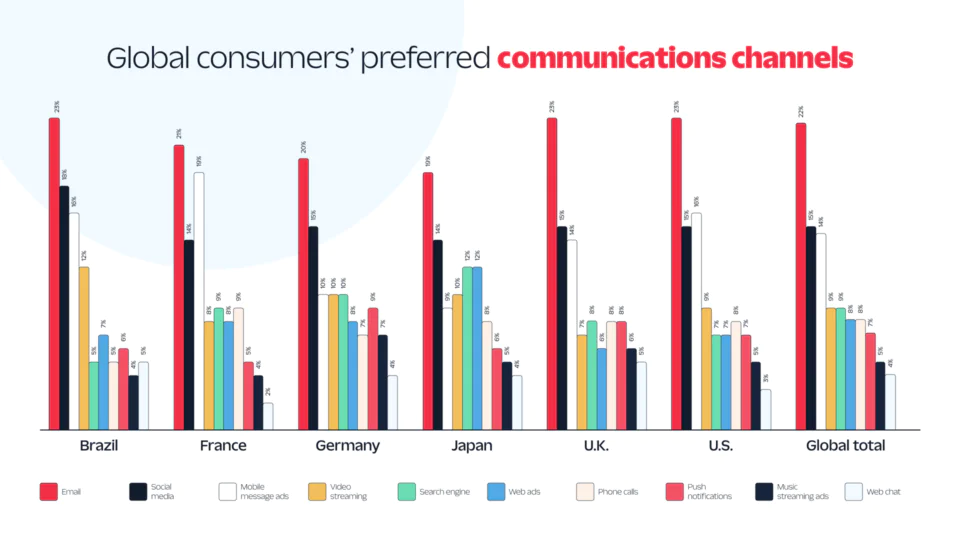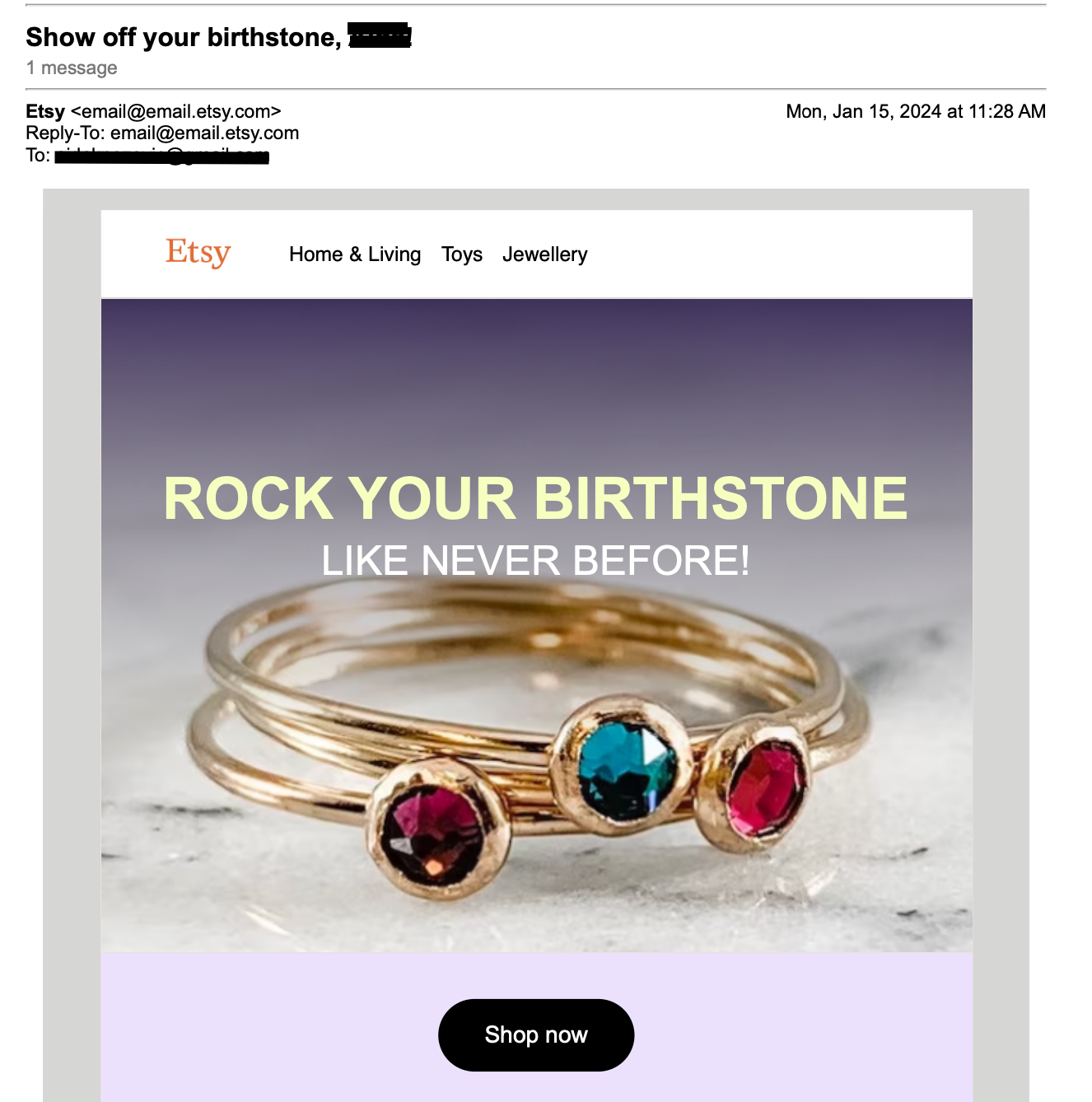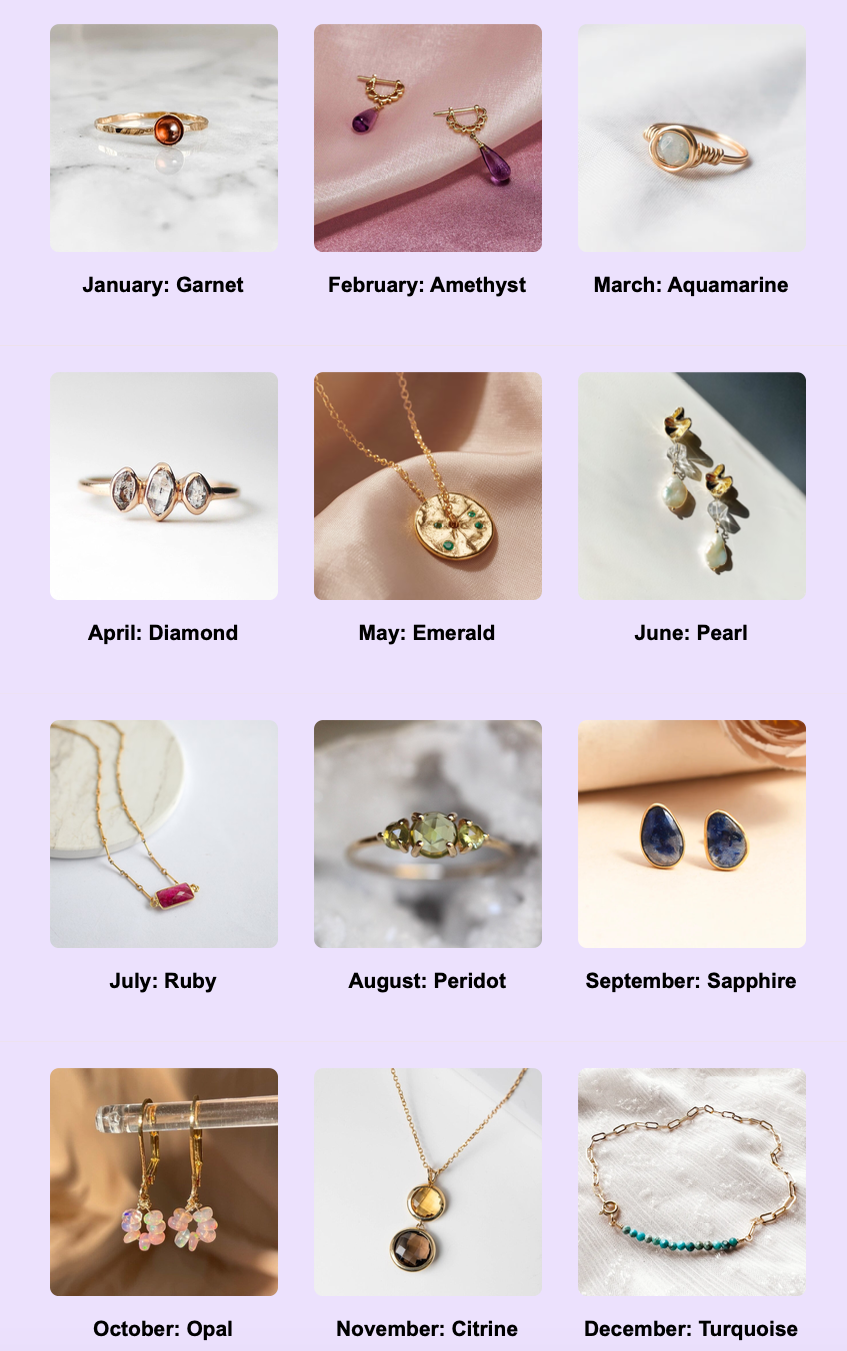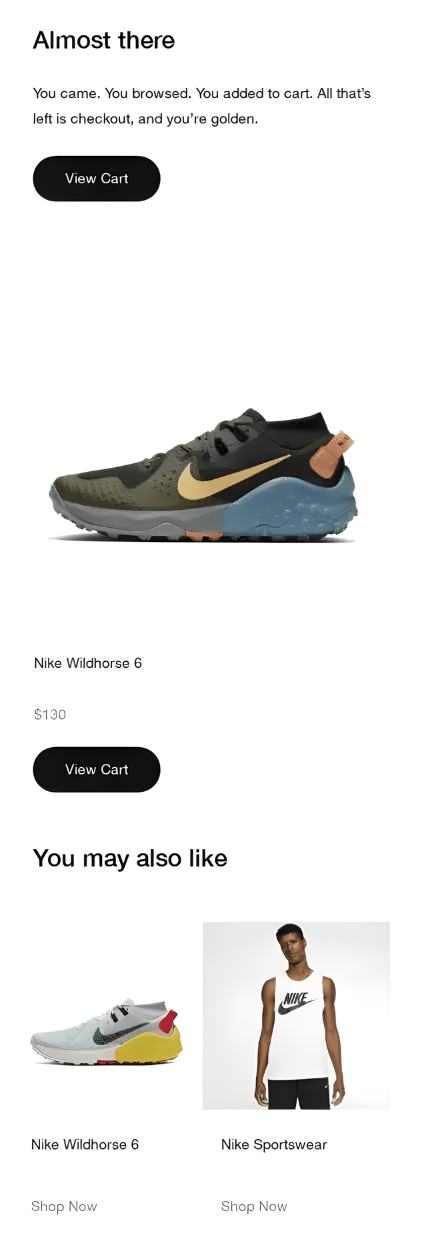How to Construct a Cross-Sell Email Campaign
Learn how to build an email cross-selling campaign that converts.
Learn how to build an email cross-selling campaign that converts.
Cross-selling (i.e., when a customer buys a product related to a previous purchase) is a part of every successful company’s marketing strategy. Not only does it drive revenue, but it can also build loyalty and retention.
Email is still the preferred communication channel (ranking above social media and SMS) according to consumers surveyed in Twilio SendGrid’s Global Messaging Engagement Report. And 77% of consumers said they’ve purchased an item based on email content.

Cross-selling over email also has a distinct advantage; it’s a direct way to interact with customers. It’s great for nurturing prospects, re-engagement, and personalizing experiences.
Despite the effectiveness of email as a marketing channel, sending cross-sell offers at random won’t lead to success. So how do you make the most of this strategy? By sending emails at the right time.
By understanding your email engagement rates, you can identify when your audience is most active and receptive to your messages. This can be as simple as not sending an email over the weekend or a national holiday, if you work in an industry like B2B SaaS where someone may not be interested in talking shop during these off hours. Or you may notice midweek your campaigns have the most engagement, and time your communications around then.
Another prime example of when to send a cross-sell email is after someone completes a purchase. While you don’t want to bombard someone with another offer straight away, you can follow up a month or so later with a relevant product that complements their initial purchase.
The success of cross-selling over email hinges on many factors, ranging from subject lines to audience segmentation. Here are three tips to keep in mind when creating these campaigns.
Running A/B tests on your subject lines will help you understand the language and tone of voice that resonates most with your audience.
Subject lines are the key to increasing your email open rate and conversions, and you’ll want to word them in a way that’s both attention-grabbing without being misleading or sounding spammy.
For your A/B tests, experiment with everything from tone of voice, to subject line length, and emojis (if that conversational style matches your brand voice). All of these factors can impact email performance – SendGrid found that three-word subject lines have a 21% open rate, compared to 15% for those that are seven words long.
For a successful cross-sell email, remember to communicate the value of the additional products you’re offering and why you’re suggesting this item or offer in the first place. Consider adding a few sentences on how the product complements their initial purchase, along with positive user ratings as a form of social proof.
Customer segmentation means separating your audience into buckets depending on their behavior, preferences, and other attributes.
Segmentation allows you to personalize your cross-selling offers, which will have a positive impact on conversions and retention. More than half (56%) of consumers say they’ll make a repeat purchase after a personalized experience, according to Segment’s State of Personalization Report.
Value-based segmentation, for example, allows you to target customers with the largest ROI. Psychographic segmentation helps you reach out to customers who share specific values or hobbies.
Get inspired for your next cross-selling email campaign with these examples from leading brands.
Hello Klean manufactures shower filters and skincare products for hard water. Customers who purchase a shower filter receive a cross-selling campaign that includes several products and a discount code.

Notice how the email explains the value of the different products and the way they work with the original purchase.
Etsy is a marketplace for vintage, handmade, and other unique items. In the email below, a customer who previously purchased Zodiac posters received an offer for jewelry featuring birthstones – a product they’d likely be interested in.


The email mentions their interests (astrology) and explains how the birthstone products can be paired with other Zodiac products.
Nike’s cross-sell email illustrates that you don’t need a lot of copy or intricate design for an attention-grabbing campaign. This is an abandoned cart email that also incorporates a couple of additional products the customer might like.

Since this item is a running shoe, Nike personalizes the cross-sell to the customer’s interests by adding a workout top to the offer.
Connect with a Segment expert who can share more about what Segment can do for you.
We'll get back to you shortly. For now, you can create your workspace by clicking below.
Here are six tips for writing great cross-selling emails:
Use short subject lines to capture the recipient’s attention
Communicate the value of the products you’re promoting in your offer
Include an incentive, like a discount code or free shipping
Segment your customers and personalize the email to their preferences and behavior
Keep the email copy short and direct
Include customer testimonials as social proof
One of the best cross-selling email strategies is a post-purchase campaign. A few weeks after buying a product, a customer receives an email with additional product suggestions related to their original purchase.
The most common mistakes associated with cross-selling email campaigns include:
Forgetting to include a call-to-action (CTA)
Writing long and uninteresting subject lines
Sending cross-sell offers that are unrelated to the customer’s interests or previous purchases
Sending too many emails
Twilio Engage harnesses the power of real-time customer data and identity resolution to create personalized experiences across channels like email, SMS, WhatsApp, and more. You can create audiences based on custom events or traits, and even orchestrate multi-step, multi-channel journeys based on real-time interactions.